- Video: Uterus with Adnexae Tubo-ovarian abscess
- Berries and herbs
- Video: ISMRM MR Academy - Adnexal Masses
- What is adnexitis
- Video: Uterus and Adnexa || uterus part and section view and khow all part so easy || fallopian tube Parts
- Recipes from honey for the treatment of adnexitis
- Video: Uterus with Adnexae - Hydrosalpinx
- Aloe and calendula
- Video: Adnexal Hemorrhagic Cyst || Ultrasound || Case 33
- Celandine and sea buckthorn oil
- Video: Uterus with adnexae Endometriotic cyst ("Chocolate cyst")
- Potentilla
- Video: Difference Between Ovarian cyst and Adnexal Cyst
- Collection for relieving pain in case of inflammation of the appendages
- Video: Adnexa - Medical Meaning
- Herbal collection to eliminate discharge
- Video: Adnexal Tumors: What You Need To Know
- Rate the author (1)
- Comments (3)
Inflammation of the appendages in women can be very painful and requires professional treatment. However, along with traditional treatments, there are several folk remedies that can help reduce the symptoms of inflammation of the appendages. Here are some of them:
- Warm compresses. Applying warm compresses to the abdomen can help relieve pain and spasms associated with inflammation of the appendages. To do this, you can use hot water, dry heat or a heating pad.
- Turmeric. Turmeric contains curcumin, which has anti-inflammatory properties. Adding turmeric to food or taking it in capsule form can help reduce inflammation.
- Garlic. Garlic contains antibacterial and anti-inflammatory properties. It can be added to food or consumed in the form of capsules.
- Ginger. Ginger contains gingerol, which has anti-inflammatory properties. It can be added to food or used as a tea.
- Raspberry leaves. Raspberry leaves have anti-inflammatory properties and may help reduce symptoms of inflammation of the appendages. You can make tea from them.
- Wild berries. Wild berries, such as blueberries, raspberries, and strawberries, contain antioxidant and anti-inflammatory properties that can help treat inflammation of the appendages.
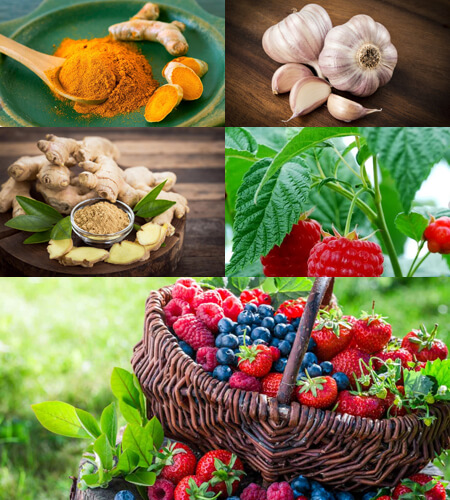
So, what is adnexitis, inflammation of the appendages in women and how to deal with it - further in our article.
Video: Uterus with Adnexae Tubo-ovarian abscess

Berries and herbs
Some berries and herbs can help reduce inflammation of the appendages in women. Here are some of them:
- Cranberries. Cranberries contain substances that can help reduce the growth of bacteria that can cause inflammation of the appendages in women. Cranberry juice or cranberry extract may be helpful in treating this condition.
- Sage. Sage contains antibacterial and anti-inflammatory properties that can help reduce inflammation of the appendages. Sage can be consumed as a tea or used to make decoctions.
- Aloe. Aloe contains antibacterial properties and can help reduce inflammation of the appendages. Aloe juice can be added to drinks or used to make creams and ointments.
- Ginger root. Ginger root contains anti-inflammatory properties that can help reduce inflammation of the appendages. Ginger tea or adding ginger root to food can be helpful.
- Raspberry. Raspberries contain antibacterial properties and may help reduce inflammation of the appendages. Raspberry leaves can be used to make tea or decoction.
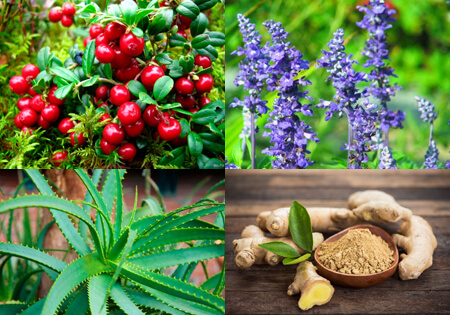
It is important to remember that folk remedies are not a substitute for professional medical care. If you suspect that you have inflammation of the appendages, see your doctor for professional advice and treatment.
You may be interested in information about how to understand that you have inflammation of the appendages- read our other article.
Video: ISMRM MR Academy - Adnexal Masses

What is adnexitis
Adnexitis is an inflammation of the ovaries and / or fallopian tubes in women. It is a common gynecological disease that can be caused by a variety of causes such as infections, bacterial or viral infections, and pelvic injury or injury.
Symptoms of adnexitis may include pain in the lower abdomen, discharge, fever, nausea and vomiting, painful intercourse, and other symptoms.
Adnexitis can lead to serious complications, such as infertility, if not treated on time. Therefore, it is important to see a doctor if you suspect adnexitis or other gynecological problems. A doctor can make an accurate diagnosis and prescribe the necessary treatment, which may include antibiotics and other medical procedures.
You may be interested in information on the topic what to do with cervical erosion - read our other article.
Video: Uterus and Adnexa || uterus part and section view and khow all part so easy || fallopian tube Parts

Recipes from honey for the treatment of adnexitis
Honey is a natural product that contains antibacterial and anti-inflammatory properties, so it can be useful in the treatment of adnexitis. However, I want to point out that honey should not replace professional medical treatment, and if you suspect adnexitis, it is important to see a doctor.
Some of the honey recipes that can help treat adnexitis include:
- Ginger Honey Drink: Add 1/2 teaspoon honey and 1/4 teaspoon ground ginger to a cup of hot water. Stir and drink. This drink can help reduce the inflammation and soreness associated with adnexitis.
- Cinnamon Honey Drink: Add 1/2 teaspoon honey and 1/4 teaspoon cinnamon to a cup of hot milk. Stir and drink. This drink can help reduce the inflammation and soreness associated with adnexitis.
- Honey and Garlic: Mix 1 teaspoon honey and 1 teaspoon fresh garlic, crushed into a paste. Consume this mixture daily. Garlic contains antibacterial properties that can help reduce inflammation associated with adnexitis.
- Honey and Lemon: Mix 1 teaspoon honey and 1 teaspoon fresh lemon juice. Consume this mixture daily. Lemon contains vitamin C, which can help boost the immune system and reduce inflammation associated with adnexitis.
- Honey compress: Mix 1/4 teaspoon honey and 1/4 teaspoon turmeric in a cup of hot water. Soak a soft cloth in this solution and apply to the affected area. This compress can help reduce the inflammation and soreness associated with adnexitis.
Video: Uterus with Adnexae - Hydrosalpinx

Aloe and calendula
Aloe and calendula can be used as natural remedies to reduce inflammation in the uterus.
Here are some recipes you might find helpful:
- Mix 2 tablespoons freshly cut aloe leaf with 2 tablespoons marigold flowers. Add 1 cup boiling water and steep for 20 minutes. Strain and drink 3 times a day before meals. This drink can help reduce inflammation and pain in the appendages.
- Mix 2 tablespoons freshly cut aloe leaf with 2 tablespoons marigold flowers and 1 tablespoon honey. Apply the mixture to a cotton swab and inside the vagina at night. This recipe can help reduce inflammation and pain in the appendages.
- Mix 2 tablespoons freshly cut aloe leaf with 2 tablespoons marigold flowers and 1 tablespoon honey. Add 1 cup boiling water and steep for 20 minutes. Strain and drink 3 times a day before meals. This drink can help reduce inflammation and pain in the appendages.
Video: Adnexal Hemorrhagic Cyst || Ultrasound || Case 33

Celandine and sea buckthorn oil
Celandine and sea buckthorn oil can help with the treatment of uterine appendages, but remember that these recipes cannot replace professional medical treatment. If you have symptoms of inflammation of the uterus, consult a doctor for professional advice and treatment.
Here are some recipes you might find helpful:
- Celandine and sea buckthorn oil. Mix 1 tablespoon of celandine with 2 tablespoons of sea buckthorn oil. Apply the mixture to a cotton swab and inside the vagina at night. This recipe can help reduce inflammation and pain in the appendages.
- Sea buckthorn oil and honey Mix 2 tablespoons sea buckthorn oil with 1 tablespoon honey. Apply the mixture to a cotton swab and inside the vagina at night. This recipe can help reduce inflammation and pain in the appendages.
- Celandine and honey Mix 1 tablespoon of celandine with 1 tablespoon of honey. Apply the mixture to a cotton swab and inside the vagina at night. This recipe can help reduce inflammation and pain in the appendages.
Video: Uterus with adnexae Endometriotic cyst ("Chocolate cyst")

Potentilla
Potentilla can be used to treat inflammation of the uterus due to its anti-inflammatory properties.
However, before using cinquefoil for the treatment of uterine appendages, it is necessary to consult a doctor, as its use can cause side effects such as nausea, vomiting and dizziness.
Here are some recipes you might find helpful:
- Potentilla infusion. Pour 1 tablespoon of dry goose cinquefoil with 1 cup of boiling water and leave for 15 minutes. Strain and drink 3 times a day before meals. This drink can help reduce inflammation and pain in the appendages.
- Tampons with goose cinquefoil. Mix 1 tablespoon of dried cinquefoil with 1 tablespoon of honey and apply the mixture to a cotton swab. Insert a tampon into your vagina for 1-2 hours. This recipe can help reduce inflammation and pain in the appendages.
- An infusion of goose cinquefoil and calendula. Mix 1 tablespoon of dried cinquefoil with 1 tablespoon of marigold flowers. Pour the mixture with 1 cup boiling water and leave for 15 minutes. Strain and drink 3 times a day before meals. This drink can help reduce inflammation and pain in the appendages.
Video: Difference Between Ovarian cyst and Adnexal Cyst

Collection for relieving pain in case of inflammation of the appendages
There are several herbal preparations that can help relieve pain from inflammation of the uterus. However, before using any herbal preparation for the treatment of inflammation of the appendages, it is necessary to consult a doctor, as some herbs can cause side effects or interact with other medications.
Here are some recipes you might find helpful:
- Collection of chamomile, calendula and lemon balm. Mix 1 teaspoon of dried chamomile, calendula and lemon balm. Pour the mixture with 1 cup boiling water and leave for 15 minutes. Strain and drink 3 times a day before meals. This drink can help reduce inflammation and pain in the appendages.
- Collection of ginger, cinnamon and honey. Mix 1 teaspoon each of ginger and cinnamon. Add 1 tablespoon of honey and pour 1 cup boiling water over the mixture. Steep for 10 minutes, then strain and drink 3 times a day before meals. This drink can help reduce pain in the appendages and improve overall condition.
- Collecting from lavender, sage and lemon balm. Mix 1 teaspoon each of dried lavender, sage and lemon balm. Pour the mixture with 1 cup boiling water and leave for 15 minutes. Strain and drink 3 times a day before meals. This drink can help relieve pain and reduce inflammation in the appendages.
Video: Adnexa - Medical Meaning

Herbal collection to eliminate discharge
If you want to learn about some herbal preparations that can help reduce discharge from inflammation of the appendages, I can share a few recipes:
- Combine Calendula and Chamomile: Mix 2 tablespoons dried marigold and 2 tablespoons dried chamomile. Pour 500 ml of boiling water and leave for 15-20 minutes. Strain and drink 2-3 times a day.
- Collecting calendula and lemon balm: Mix 2 tablespoons dried marigold and 2 tablespoons dried lemon balm. Pour 500 ml of boiling water and leave for 15-20 minutes. Strain and drink 2-3 times a day.
- Ginger & Cinnamon Gathering: Combine 1 tablespoon fresh or dried ginger and 1 tablespoon cinnamon. Pour 500 ml of boiling water and leave for 15-20 minutes. Strain and drink 2-3 times a day.
It is important to understand that inflammation of the appendages is a serious disease that requires medical attention. Herbal tinctures and preparations may help reduce symptoms, but are not a substitute for professional treatment. If you have symptoms of inflammation of the appendages, you should consult a doctor.
Video: Adnexal Tumors: What You Need To Know










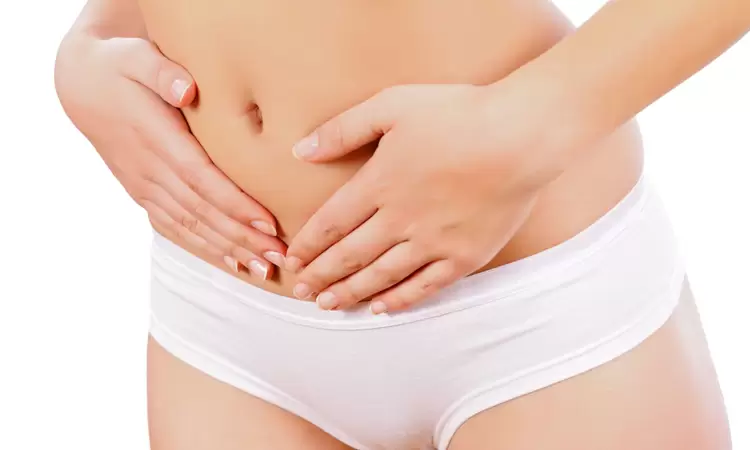


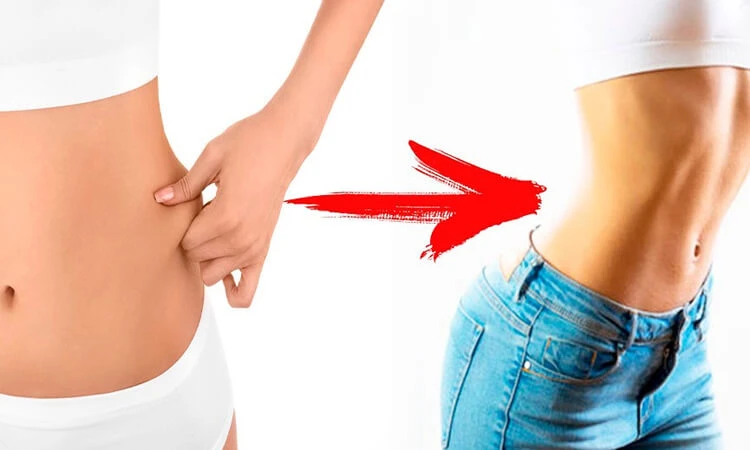
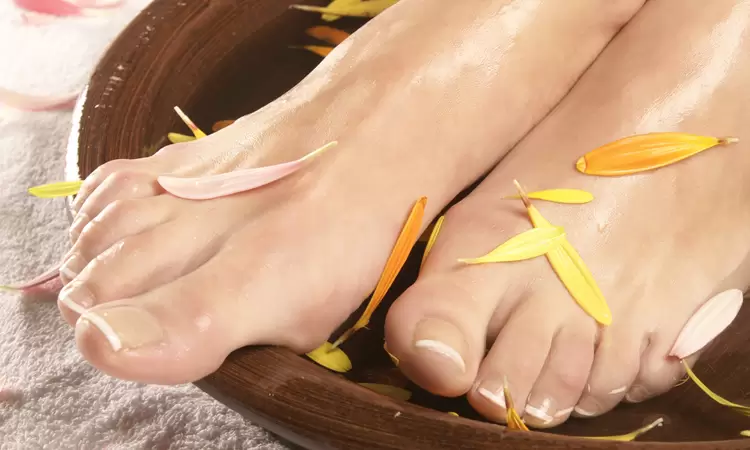

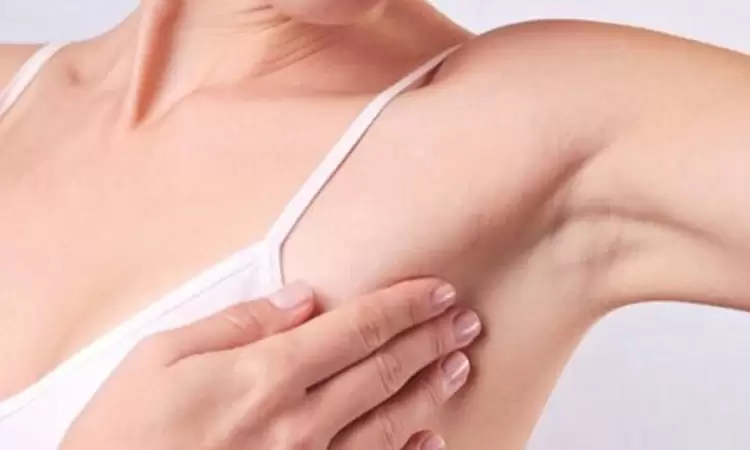
Comments (3)